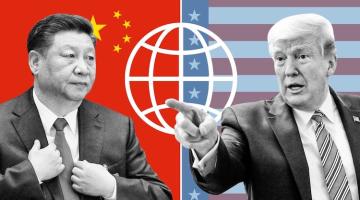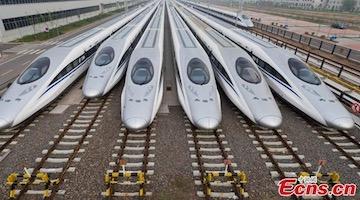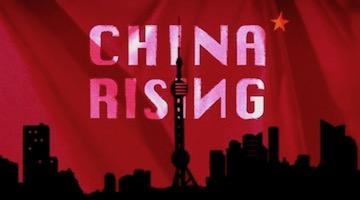The author argues that decollectivization served as the political basis for the capitalist transition in China.
“A strong coalition between workers and peasants is needed for building and maintaining socialism at any place.”
In this series, we ask acclaimed authors to answer five questions about their book. This week’s featured author is Zhun Xu. Dr. Xu is Assistant Professor of Economics at Howard University. His book isFrom Commune to Capitalism: How China’s Peasants Lost Collective Farming and Gained Urban Poverty.
Roberto Sirvent: How can your book help BAR readers understand the current political and social climate?
Zhun Xu:My book From Commune to Capitalism studies the dramatic changes in the social relations in the Chinese countryside. The Chinese revolution and the building of rural communes in the last century are an important part of the global radical movement of overthrowing imperialism/capitalism and building a new society. There were tremendous achievements, with huge challenges as well.
The core of the contemporary politics over the world is a rejection of the 20thcentury revolutions. A radical vision is already lost from the political arena. My book studies how this happened (and so fast) in the context of struggles over the rural economy in China. It analyzes the class dynamics that move China from the Maoist period to the later transition to capitalism period. The analysis would help BAR readers understand the current Chinese political economy better from a class/historical point of view.
What do you hope activists and community organizers will take away from reading your book?
I hope activists and organizers will appreciate the struggles for a better society in the Chinese rural communes. I think many challenges facing the communes in China are also present in other places, for example, how to encourage participation and avoid stratification. There are good examples but also failures in the Chinese story.
I also think that people can learn from the political economy of building collectives. On the micro level, there is the question of efficiency and equity. On the macro level, there is the question of the relationship between agriculture and industry as well as workers and peasants. My book argues that one cannot separate equity and efficiency in collectives, and a strong coalition between workers and peasants is needed for building and maintaining socialism at any place.
We know readers will learn a lot from your book, but what do you hope readers will un-learn? In other words, is there a particular ideology you’re hoping to dismantle?
The academic and popular writings on the socialist collectives in Chinese countryside tend to argue the following: Collectives are inefficient and people don’t like them. First, the literature argues, the Chinese rural collectives suffered from inefficiency, and decollectivization greatly improved agricultural productivity. And second, because of their dissatisfaction with the rural regime, the peasants spontaneously organized and collectively dismantled the old system. This narrative fits nicely in the hegemonic neoliberal ideology, which emphasizes the holy connection between individual “free choice” and spontaneous order and economic efficiency. And it has become part of the cornerstone of mainstream ideology in China.
“The collectives were very efficient.”
My research shows that the collectives were very efficient, particularly so compared to the post-collective era. The research also shows that the decollectivization was coercive rather than spontaneous. I argue that decollectivization served as the political basis for the capitalist transition in China, in that it not only disempowered the peasantry but also broke the peasant-worker alliance and greatly reduced the potential resistance to the reform. The political significance of rural reform for the CCP cannot be overstated, and this was exactly why the mainstream interpreted decollectivization as spontaneous.
Who are the intellectual heroes that inspire your work?
There are several important works that inspired my writings. First is the writings from Mao Zedong, especially his analysis about peasants and the ways of building socialism in a third world country. Even decades after Mao’s time, those writings are still extremely powerful and relevant. Mao emphasized the importance of building collectives from the beginning, and he explicitly warned that decollectivization would be the first step to restoration of capitalism in China.
The books by William Hinton, such as Fanshen,Shenfan, and the Great Reversal, have a huge impact on my research. Hinton began studying the Chinese countryside since the 1940s when he participated in the whole process of land reform in a village. He was able to develop a close relationship with the villagers and he came back several times in the following decades to record the development and challenges of the same village. Like Mao, Hinton loved the working people and supported their socialist collectives. Hinton was also one the first to argue against the decollectivization campaign and point out the rising problems in the rural economy in the post-Mao era.
In what way does your book help us imagine new worlds?
In China, the story of decollectivization is being employed as a strong ideological weapon to defend privatization and the free market. As soon as the issue of socialism and collective agriculture is raised, some people simply say, “We’ve done that and it failed. That is why we had decollectivization.” For Marxists and socialists in China, it has become necessary to debunk the myth around collectives and decollectivization before they can convey their radical visions of a new society. I hope this book will contribute to those debates and struggles.
The last generation has not fully solved the questions arising from the wave of revolutionary experiments. Any future socialist project will have to revisit the history of socialism in the 20thcentury. The neoliberal counterrevolution has provided literally nothing valuable on building a better society. The working people in the world cannot afford to waste more time on capitalism. It is time to pick up these questions again.
Roberto Sirvent is Professor of Political and Social Ethics at Hope International University in Fullerton, CA. He also serves as the Outreach and Mentoring Coordinator for thePolitical Theology Network. He is co-author, with fellow BAR contributor Danny Haiphong, of the new book, American Exceptionalism and American Innocence: A People’s History of Fake News—From the Revolutionary War to the War on Terror.
COMMENTS?
Please join the conversation on Black Agenda Report's Facebook page at http://facebook.com/blackagendareport
Or, you can comment by emailing us at comments@blackagendareport.com

















